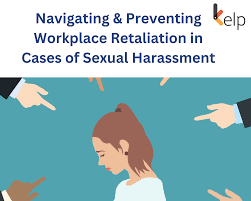Understanding Workplace Harassment: Your Rights and Legal Protections
Workplace harassment, whether verbal or physical, is a serious issue that affects millions of employees across the United States. Under U.S. law, such harassment is expressly prohibited. It is essential for employees to be aware of their rights and understand the proper steps to take if they experience harassment in the workplace.
Harassment in the workplace can take many forms. It may include unwelcome verbal comments, physical intimidation, or other behaviors that create a hostile work environment. Recognizing these behaviors as illegal under federal and state laws is the first step toward protection and justice.
What Constitutes Workplace Harassment?
According to various federal statutes, workplace harassment includes any unwelcome conduct based on protected characteristics such as race, color, religion, sex, national origin, age, disability, or genetic information. This conduct becomes unlawful when:
- Enduring the offensive conduct becomes a condition of continued employment, or
- The conduct is severe or pervasive enough to create a work environment that a reasonable person would consider intimidating, hostile, or abusive.
Examples of workplace harassment include derogatory remarks, slurs, physical assaults or threats, intimidation, ridicule, insults, offensive objects or pictures, and interference with work performance.
Legal Protections Against Workplace Harassment
Federal laws such as Title VII of the Civil Rights Act of 1964, the Age Discrimination in Employment Act (ADEA), and the Americans with Disabilities Act (ADA) provide comprehensive protections against workplace harassment. These laws make it illegal for employers to discriminate against or harass employees based on protected characteristics.
Moreover, these laws also protect individuals from retaliation when they assert their rights to be free from workplace harassment. Retaliation includes any adverse action taken against an employee who complains about harassment or participates in an investigation related to harassment claims.
Steps to Take if You Experience Workplace Harassment
If you experience workplace harassment, it is crucial to take the following steps to protect yourself and ensure that your concerns are formally addressed:
- Report the harassment to your Human Resources (HR) department or another designated company representative as soon as possible and do so in writing.
- Keep copies of all reports and correspondence related to the harassment complaint.
- Maintain detailed records of the harassment incidents, including dates, times, locations, what was said or done, and the names of any witnesses.
- If your management ignores your complaint or fails to take corrective action, consider filing a charge with the Equal Employment Opportunity Commission (EEOC). This must be done within 180 days of the alleged harassment incident.
- Understand that you are protected by law from retaliation for reporting harassment, even if you are working in the U.S. on a visa.
Filing a Charge with the EEOC
The EEOC is the federal agency responsible for enforcing laws against workplace harassment. Filing a charge with the EEOC involves submitting a formal complaint of discrimination or harassment by completing necessary forms online, by mail, or in person.
Once your charge is filed, the EEOC will investigate the claim and may attempt to mediate a resolution between you and your employer. If the EEOC finds evidence of discrimination or harassment, it may file a lawsuit on your behalf or issue you a Notice of Right to Sue, allowing you to pursue legal action in court.
Documenting Your Case
Careful and comprehensive documentation is critical in harassment cases. This includes:
- Saving all written communications such as emails, text messages, or notes related to the harassment.
- Recording detailed descriptions of each harassment incident, including the context and any witnesses present.
- Keeping copies of your reports to HR and any responses or actions taken by the employer.
- Gathering statements from witnesses willing to support your claim.
Your Rights as a Visa Holder
Employees working in the United States on a visa have the same rights to a harassment-free workplace as any other employee. Importantly, the law protects visa holders from retaliation for reporting workplace harassment or discrimination. Retaliatory actions can include termination, demotion, reduction in hours, or other adverse employment actions.
If you are a visa holder experiencing workplace harassment, it is essential to understand that your immigration status cannot be used as a tool against you in harassment or retaliation cases. Employers are prohibited from retaliating against employees regardless of their immigration status.
Seeking Proper Legal Assistance
Navigating workplace harassment claims can be complex, especially when dealing with legal deadlines and filing processes. Obtaining competent legal counsel specialized in employment law is crucial to protecting your rights.
If you need proper legal assistance regarding your workplace harassment concerns, it is recommended to reach out to experienced attorneys who can guide you through the process, help collect necessary evidence, and represent you throughout the investigation or litigation.
You can contact legal professionals through communication channels provided in the bio or by sending a private message to discuss your case confidentially.
Summary of Your Rights and Recommended Actions
Understanding and asserting your rights empowers you to address workplace harassment effectively. Remember these key points:
- Workplace harassment, whether verbal or physical, is illegal under U.S. law.
- Always report harassment in writing to your Human Resources department and retain copies of your report and any replies.
- If management does not respond adequately, file a charge with the EEOC within 180 days of the harassment incident.
- You are protected from retaliation for reporting harassment, even if you are on a visa.
- Keep detailed records, including witness names, messages, and incident details, to support your claims.
- Seek professional legal assistance if necessary to ensure your rights are fully protected.
Workplace harassment undermines the dignity and safety of employees and is unlawful under U.S. regulations. Knowing your rights and the proper procedures to report and address harassment strengthens your position and helps create safer, more respectful work environments. Regardless of your immigration status, you have protections against harassment and retaliation. Staying informed and proactive, combined with professional legal support, are your best tools in combating workplace harassment.
Legal Marketplace Consultant is a dedicated legal firm specializing in comprehensive and personalized employment law services. Our team consists of skilled lawyers, legal advisors, and consultants committed to protecting employees" rights and ensuring justice in every workplace.































